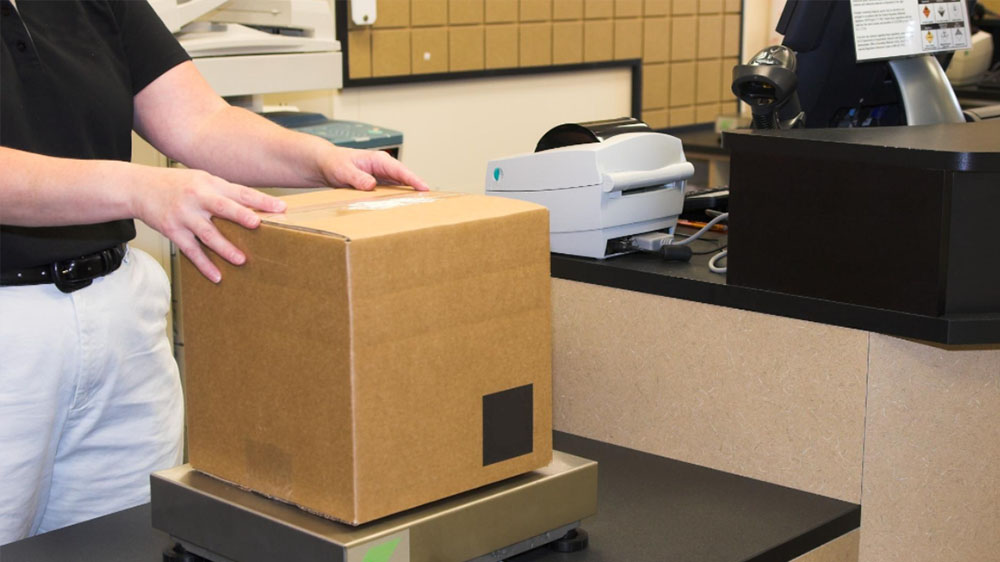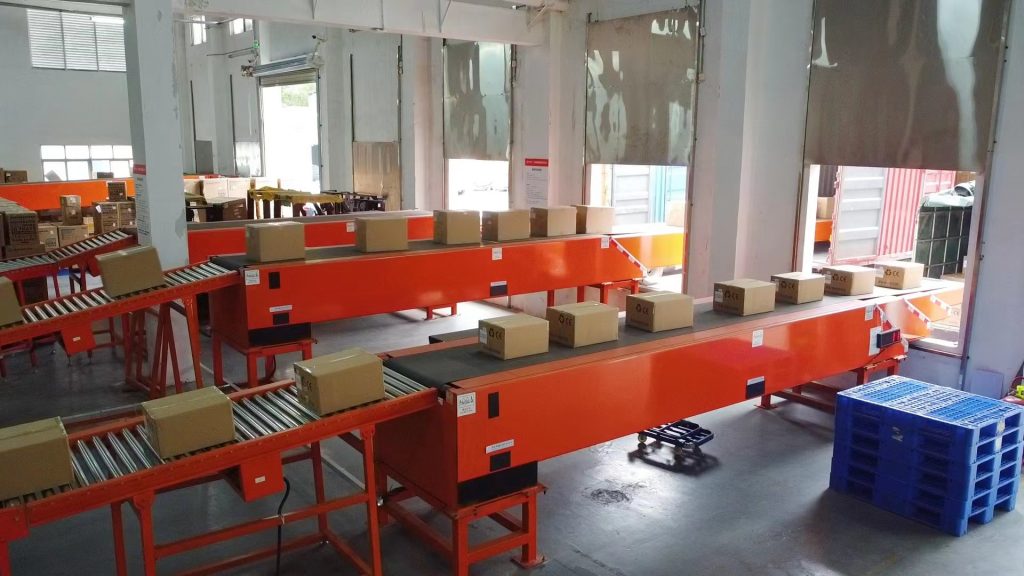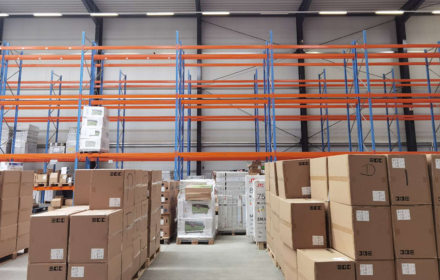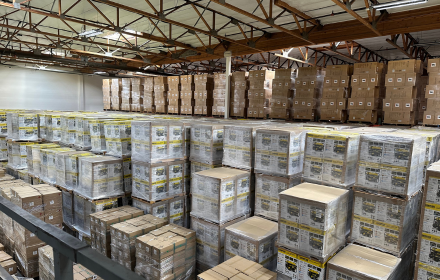A Step-by-Step Guide For Shipping Packages Internationally

For e-commerce, there is still a huge global consumer base waiting to be tapped. With billions of potential customers worldwide, the potential to expand your reach, boost sales and drive business growth is limitless.
Navigating the world of international shipping also presents its own set of challenges. Adapting to new approaches and experimenting with diverse strategies becomes imperative in order to stand out from competitors. To be outstanding in this endeavor, it is critical to find the best method for international package shipping.
To help your e-Commerce globalization succeed, this blog post provides valuable insights. Explore it today and give yourself the guidance you need to thrive in this dynamic environment.
Shipping a package internationally requires careful planning and attention to detail. Here’s a more detailed breakdown of the steps involved:
Prepare Your Package
Choose appropriate packaging materials, such as a sturdy box or padded envelope, to protect the contents during transit.
Securely wrap and cushion the items to prevent damage. Use bubble wrap, packing peanuts, or other protective materials as needed.
Make sure the items are well-secured within the package to prevent shifting during transit.
Choose a Shipping Service
Research and compare international shipping options from various carriers like UPS, FedEx, DHL, and national postal services (e.g., USPS in the United States).
Consider factors such as cost, delivery time, tracking options, and insurance coverage when selecting a shipping service.
Complete Customs Documentation
Most international shipments require customs documentation, which includes a customs declaration form and potentially other documents depending on the destination and the nature of the items.
Provide accurate and detailed information about the contents, value, and purpose of the package.
Some carriers may offer online tools to help you complete the required customs forms.
Declare the Value
Declare the accurate value of the items in your package. This is important for customs clearance and potential taxes and duties assessment.
Pay for Shipping
Address Your Package
Clearly write or print the recipient’s name, address, and contact information on the package. Make sure the information is accurate.
Labeling and Documentation
Attach the shipping label provided by the carrier securely to the package. Make sure it’s legible and won’t easily come off.
Include any necessary customs forms or documentation with the package.
Insurance (Optional)
Consider adding insurance to your shipment, especially if the contents are valuable. This can provide coverage in case of loss or damage during transit.
Customs Clearance
The package will go through customs clearance in the destination country. This process involves verifying the contents, assessing taxes or duties (if applicable), and ensuring compliance with local regulations.
Delivery to Recipient

When shipping a package internationally, it’s crucial to thoroughly review the list of prohibited items to ensure a smooth and hassle-free process.
Prohibited items are those that are not allowed to be shipped across borders due to safety, legal, or regulatory reasons. By taking the time to check and adhere to these restrictions, you can avoid potential delays, fines, and complications during customs clearance.
Before sending your package, it’s recommended to research the specific prohibited items list provided by both the shipping carrier and the destination country’s customs authority.
These lists can include items like hazardous materials, restricted substances, perishable goods, and items that are culturally or politically sensitive. Such precautions are especially important because violating these regulations can lead to serious consequences, ranging from confiscated packages to legal actions.
When reviewing prohibited items, pay attention to various categories such as:
Hazardous Materials: Items such as flammable liquids, explosives, and toxic substances are generally not allowed for international shipping due to safety concerns.
Restricted Substances: Certain substances, including narcotics, certain chemicals, and controlled medications, are subject to strict regulations and may require special permits for international shipping.
Perishable Goods: Items like fresh foods, plants, and certain biological materials may be restricted or prohibited due to the risk of contamination or damage during transit.
Cultural and Political Sensitivity: Some items might be banned due to cultural, religious, or political reasons. These can include materials that promote hate speech, pornography, or materials that might be seen as offensive in the destination country.
Valuable Items: Some valuable items, such as cash, precious metals, and jewelry, may have limitations or requirements for insurance and declared value.
Electronic Devices: In some cases, electronic devices with certain battery types might be prohibited or subject to special handling procedures.

The cheapest way to ship a package internationally depends on various factors including the size and weight of the package, the destination country, the shipping speed required, and the shipping carrier you choose. However, here are some general tips and options you can consider to find the most cost-effective international shipping method:
Compare Shipping Carriers
Research and compare international shipping rates from different carriers, such as national postal services (e.g., USPS, Royal Mail), private carriers (e.g., FedEx, UPS), and international shipping consolidators (e.g., DHL eCommerce, Asendia).
Some carriers offer specific services aimed at providing more affordable international shipping options, especially for lighter and smaller packages.
Choose Economy or Standard Services
Many carriers offer economy or standard international shipping services that take longer to deliver but are more cost-effective compared to express services.
Selecting a longer delivery window can significantly reduce the shipping cost.
Pack Light and Small
Shipping costs are often determined by the package’s size and weight. Packing your items as compactly as possible can help you avoid dimensional weight charges and reduce costs.
Consider Postal Services
National postal services of various countries often offer international shipping services at competitive rates, particularly for small packages.
Look into the flat-rate or small packet options that some postal services provide for cost-effective shipping.
Consider Customs Duties and Taxes
Keep in mind that the cheapest shipping option might not always be the most cost-effective overall if you’re hit with high customs duties or taxes on the receiving end. Research the destination country’s rules to understand potential additional costs.
Negotiate Rates (for High Volume Shippers)
If you are a business or a frequent shipper, you might be able to negotiate better shipping rates with certain carriers.
As a 3pl company, DIDADI Logistics Tech has established relationships with multiple shipping carriers. DIDADI can choose from a variety of carriers based on the specific needs of each shipment. This allows us to select the most cost-effective option for each shipment’s size, weight, destination, and timeline.

Partnering with a reliable Third-Party Logistics (3PL) provider like DIDADI Logistics can significantly simplify your international shipping experience:
Custom Solutions: Benefit from tailored shipping solutions that suit your unique requirements, whether you’re a small business or a large enterprise.
Global Network: Tap into a vast network of carriers, customs brokers, and partners that have a deep understanding of international shipping procedures.
Efficient Warehousing: Store your inventory strategically in warehouses across China, the US, UK, EU, CA and Australia, reducing transit times and improving delivery efficiency.
Technology Integration: Leverage cutting-edge logistics technology and order management systems to track shipments in real-time and optimize supply chain management.
Dedicated Support: Enjoy the support of dedicated customer service professionals who are well-versed in international shipping intricacies.
With the right knowledge and a reliable partner like DIDADI Logistics, you can navigate the complexities of international shipping confidently. From documentation to packaging, from cost considerations to prohibited items, we’re here to guide you through every step of the process. Expand your horizons and ship your packages worldwide with the expertise and support of DIDADI Logistics. Contact us today to explore our comprehensive international shipping solutions.
Recommended Reading















